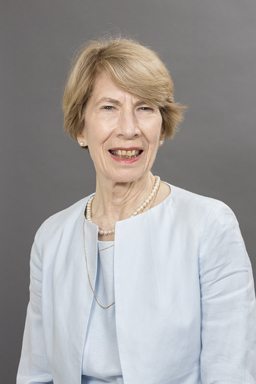GSPIA Prof. Louise Comfort Receives Distinguished Citizen Award

GSPIA Professor Louise Comfort, director of the Center for Disaster Management, has received the Distinguished Citizen Award from Macalester College. Comfort graduated from Macalester in 1956. The Distinguished Citizen Award recognizes alumni who have exercised leadership in civic, social, religious and professional activities. It is given because the Alumni Association, the Board of Trustees, and the faculty of Macalester believe that a college education should be the training and inspiration for unselfish and effective service to the community, the nation, and the world. Recipients demonstrate a practical acceptance of these obligations in their lives and work.
Before Louise Kloos Comfort graduated in 1956, Macalester professor and dean J. Huntley Dupre suggested that she consider university teaching and research. Professors shape young people’s lives, he told the philosophy and political science major, and handed her an application for a graduate fellowship. With Dean Dupre’s support, she received the fellowship, and never looked back.
Comfort’s teaching career spans 50 years—and counting. An internationally renowned expert in crisis management and disaster preparedness, Comfort teaches at the University of Pittsburgh’s Graduate School of Public and International Affairs. She also directs the Center for Disaster Management and is a principal investigator for several large¬-scale research projects. She has received many grants to support her research, including fieldwork following 23 earthquake disasters in 15 countries.
Beginning as a Macalester student during her SPAN (Student Project for amity Among Nations) trip to Italy, Comfort began exploring what happens when people witness the same event but respond very differently. She focused on studying decision making under uncertainty, which led to disaster planning. In that field, she grapples with complex questions: "How does the government make decisions to protect populations from harm? When public personnel have a legal responsibility to protect the public good, how do they decide what to do in a situation they’ve never seen before? How can we improve the likelihood of making more informed decisions?”
Comfort earned a master’s degree in political science from the University of California, Berkeley, and, in the midst of teaching and raising two children, a PhD from Yale University. Today she teaches public policy analysis, information policy, and organizational theory. And that advice 60 years ago from Dean Dupre? In Comfort’s words: “I gradually discovered that he was right. Engaging students in discovery and exploring questions from multiple perspectives has been fascinating.”

